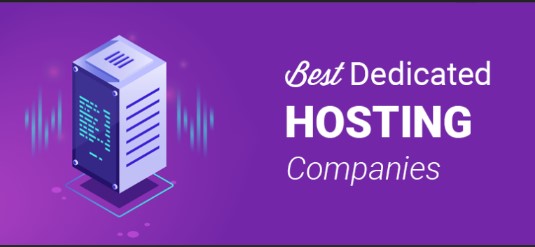Top Dedicated Server Hosting
- Understanding the Significance of Dedicated Server Hosting
Dedicated server hosting plays a crucial role in providing a robust infrastructure for websites, ensuring high performance and security. - How Dedicated Servers Enhance Website Performance and Security
Dedicated servers offer exclusive resources and configurations, enhancing website speed, reliability, and protection against cyber threats.
Key Features of Dedicated Server Hosting
- Robust Hardware Specifications
CPU Power and Cores
The CPU (Central Processing Unit) determines the server’s processing capabilities, with higher core counts and clock speeds translating to faster data processing.RAM Capacity and Type
RAM (Random Access Memory) impacts server performance by storing data temporarily for quick access, crucial for handling multiple tasks simultaneously. - Storage Options: HDD vs. SSD
Choosing between traditional Hard Disk Drives (HDDs) and Solid State Drives (SSDs) affects speed and reliability; SSDs offer faster data retrieval and better durability. - Enhanced Security Measures
Dedicated IP Address and SSL Certificates
A dedicated IP enhances security by isolating your website from others on the server, while SSL certificates encrypt data for secure online transactions. - Firewall Configuration and DDoS Protection
Configurable firewalls prevent unauthorized access, while DDoS (Distributed Denial of Service) protection safeguards against malicious traffic and server overload. - Full Control and Customization
Root Access and Server Configuration
Root access grants full administrative control over server settings, allowing customization of software, security protocols, and resource allocation. - Operating System Choices
Selecting an OS like Linux or Windows lets you optimize server performance based on application requirements and compatibility with management tools.
Advantages of Dedicated Server Hosting
- Unparalleled Performance and Reliability
Dedicated server hosting offers unmatched performance by providing exclusive access to server resources. Unlike shared hosting where resources are distributed among multiple users, dedicated servers ensure that CPU power, RAM, and storage are solely dedicated to your website or applications. This setup allows for faster data processing, quicker response times, and efficient handling of high-traffic volumes. For businesses running resource-intensive applications, such as e-commerce platforms or database-driven websites, dedicated servers guarantee consistent performance without the risk of slowdowns caused by neighboring sites.
Moreover, dedicated servers are designed to deliver exceptional reliability. With no other users sharing the server’s resources, you have full control over how resources are allocated and utilized. This minimizes the risk of server crashes or downtime due to resource overuse by other parties. For mission-critical applications that require maximum uptime, such as financial transactions or customer support portals, the reliability of dedicated servers ensures that your services remain accessible to users around the clock.
- Enhanced Security and Compliance
Security is a paramount concern for any online business, especially when handling sensitive data or processing transactions. Dedicated servers provide enhanced security measures that surpass those offered by shared hosting solutions. One of the key security advantages is having a dedicated IP address. Unlike shared hosting where multiple websites share the same IP, a dedicated IP isolates your website, reducing the risk of being affected by activities on other sites that could lead to blacklisting or security compromises.
Furthermore, dedicated server hosting allows for robust security configurations tailored to your specific needs. You can implement customized firewall settings, intrusion detection systems (IDS), and regular security audits to fortify your server against potential threats. Secure Socket Layer (SSL) certificates can also be easily installed to encrypt data transmitted between your website and users, ensuring confidentiality and protecting sensitive information.
In terms of compliance, dedicated servers offer a suitable environment for meeting regulatory requirements such as GDPR (General Data Protection Regulation) or HIPAA (Health Insurance Portability and Accountability Act). These regulations mandate stringent data protection standards, and dedicated servers provide the control and security measures necessary to achieve compliance, ensuring that sensitive data is handled by legal guidelines.
- Scalability and Flexibility
Dedicated servers provide substantial scalability options, allowing businesses to adapt their hosting resources in response to evolving needs and growth. Unlike shared hosting where resource allocation is fixed and limited, dedicated servers offer the flexibility to scale CPU, RAM, storage, and bandwidth based on your requirements. This scalability ensures that your website or applications can handle increases in traffic, data volumes, or computational demands without compromising performance.
Businesses experiencing seasonal spikes in traffic, such as during holiday seasons or promotional events, can benefit from the scalability of dedicated servers. The ability to quickly adjust resources enables seamless management of peak loads without the need for infrastructure overhaul or performance degradation. Moreover, as your business expands and diversifies its online presence, dedicated servers provide the foundation for deploying additional services or applications, supporting innovation and competitiveness in the marketplace.
- Support for Complex Applications and Workloads
Dedicated servers are well-suited for hosting complex applications and workloads that require robust computing resources and customized configurations. Whether you’re running resource-intensive applications like databases, content management systems (CMS), or streaming services, dedicated servers offer the computational power and stability needed to ensure optimal performance.
Businesses involved in development environments, software testing, or data analytics can leverage dedicated servers for deploying specialized tools and frameworks. The isolation and control provided by dedicated hosting facilitate the seamless integration of third-party applications and services, enhancing workflow efficiency and productivity. Additionally, dedicated servers support advanced technologies such as virtualization and containerization, enabling businesses to adopt modern IT practices and maximize operational efficiency.
- Full Control Over Server Environment
One of the primary advantages of dedicated server hosting is the level of control it affords over the server environment. With root access or administrative privileges, businesses have complete autonomy to customize server configurations, install specific software or applications, and optimize performance parameters according to their unique requirements.
This granular control extends to choosing the operating system (OS) that best suits your applications and technical preferences. Whether opting for Linux distributions like Ubuntu or CentOS, or Windows Server editions, dedicated servers accommodate diverse operating environments and support compatibility with a wide range of development frameworks and programming languages.
Additionally, full control over server management allows for proactive monitoring of server health, performance metrics, and resource utilization. Administrators can implement proactive measures such as load balancing, resource allocation tuning, and capacity planning to optimize server efficiency and maintain peak performance levels over time.
- Unparalleled Performance and Reliability
– Handling High Traffic and Complex Applications
Dedicated servers offer dedicated resources, ensuring consistent performance even during traffic spikes or resource-intensive operations. - Minimal Downtime and Guaranteed Uptime
With exclusive resources and robust infrastructure, dedicated servers minimize downtime, ensuring high availability for your website or applications. - Enhanced Security and Compliance
– Meeting Industry Standards (HIPAA, GDPR)
Dedicated servers support compliance with industry regulations by providing secure environments for handling sensitive data and adhering to privacy laws. - Protecting Sensitive Data and Transactions
Secure environments with encryption and strict access controls safeguard sensitive information, ensuring data integrity and user trust. - Scalability and Flexibility
– Upgrading Resources as Business Grows
Scalable resources allow for seamless expansion, accommodating increased traffic, storage demands, and new applications as your business scales. - Handling Peak Loads and Seasonal Demands
Flexibility in resource allocation lets you adjust server capacity to manage seasonal traffic spikes or sudden increases in workload without performance degradation.
Choosing the Right Dedicated Server Provider
- Provider A: Overview and Services
– Features, Pricing Plans, and Contract Terms
Detailed overview of service offerings, including hardware specifications, bandwidth limits, and service-level agreements (SLAs). - Customer Support Quality and Availability
Evaluation of support channels (phone, email, chat), response times, and expertise in resolving technical issues or service disruptions. - Provider B: Features and Benefits
– Performance Benchmarks and User Reviews
Analysis of server performance metrics such as uptime, latency, and data transfer speeds, along with user feedback and satisfaction ratings. - Scalability Options and Add-on Services
Availability of scalable solutions and additional services like managed hosting, backup solutions, and advanced security features. - Provider C: Specialized Offerings
– Industry Focus and Custom Solutions
Provider’s specialization in specific industries or niche markets, offering tailored hosting solutions and expertise in unique business requirements. - Reputation and Reliability in Hosting Market
Assessment of provider’s reputation based on reliability, customer testimonials, and longevity in the hosting industry.
Factors to Consider When Selecting a Dedicated Server
- Performance Metrics and Specifications
– Evaluating CPU Performance and RAM Requirements
Matching server specifications with workload demands, considering CPU cores, clock speeds, RAM capacity, and expected traffic patterns. - Assessing Storage Needs and Disk Configurations
Determining storage requirements based on data volume, read/write speeds, and choosing between HDDs for cost-effective storage or SSDs for enhanced performance. - Security and Compliance Requirements
– Data Encryption and Backup Solutions
Ensuring robust data encryption methods and reliable backup strategies to protect against data loss, comply with regulations, and maintain business continuity. - Compliance with Regulatory Standards
Meeting legal and industry compliance requirements such as GDPR, HIPAA, or PCI-DSS for data privacy, security, and handling of sensitive information. - Support and Maintenance Services
– Technical Support Channels (Phone, Email, Chat)
Availability of 24/7 technical support with responsive communication channels for troubleshooting, maintenance, and resolving critical issues. - Maintenance Policies and Service Level Agreements (SLAs)
Understanding SLA terms regarding uptime guarantees, response times for support requests, and provisions for hardware replacement or upgrades.
Conclusion
- Recap of the Benefits of Dedicated Server Hosting
Dedicated server hosting provides unparalleled performance, enhanced security, scalability, and full control over server resources, making it ideal for businesses needing robust online infrastructure. - Final Tips for Choosing the Best Dedicated Server Provider
Consider performance metrics, security features, support quality, and scalability options when selecting a dedicated server provider to ensure alignment with your business goals and technical requirements. - Importance of Investing in Reliable Hosting for Long-Term Success
Emphasize the role of dedicated servers in supporting business growth, maintaining data integrity, and delivering exceptional user experiences, driving long-term success and competitiveness in the digital landscape.





